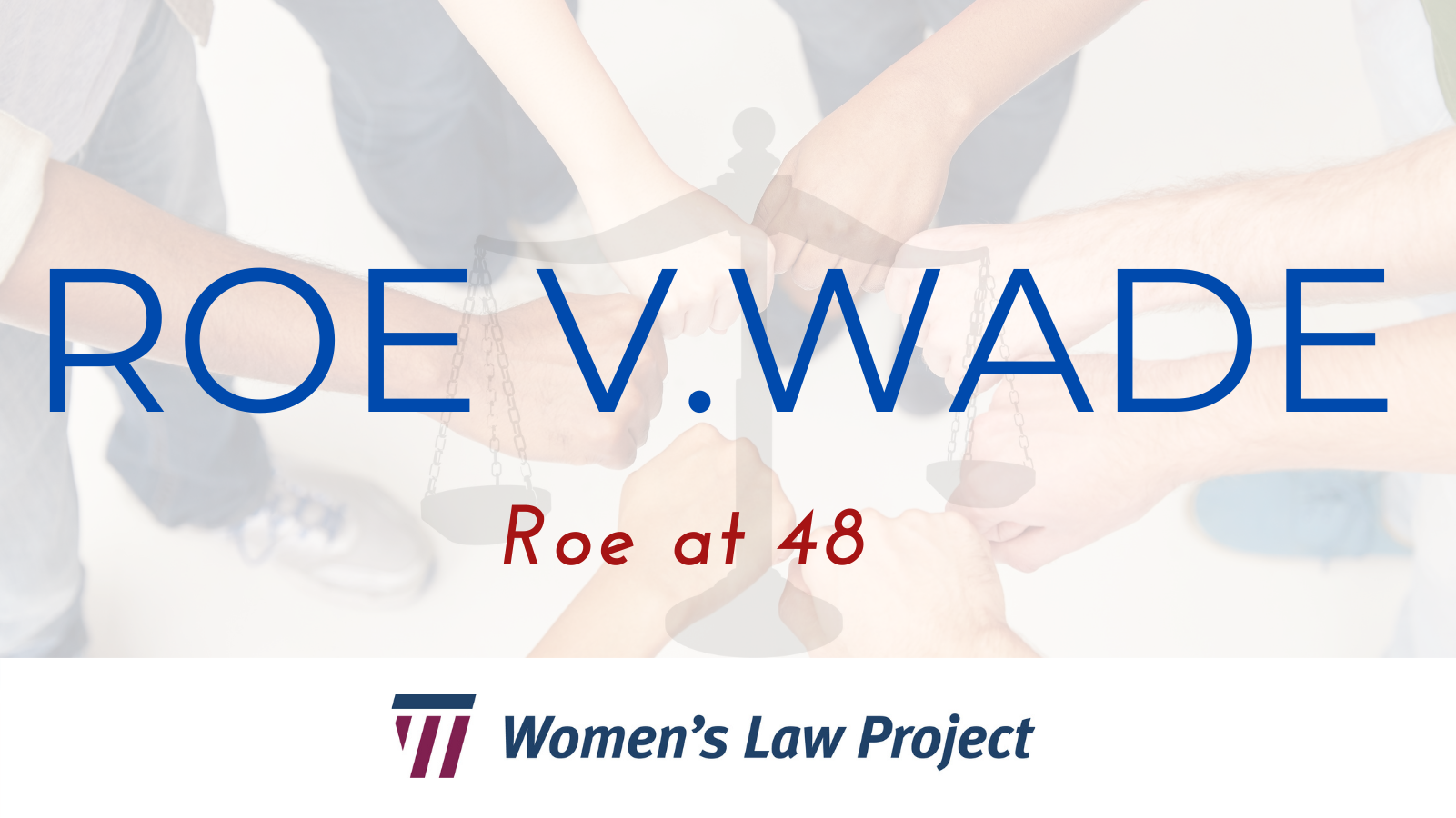
Today marks the 48th anniversary of the day the U.S. Supreme Court affirmed the constitutional right to abortion in the landmark case Roe V. Wade.
If you’ve never listened to the arguments, you can do that here.
Forty-eight years after Roe, reproductive advocates find ourselves in a paradox: We must spend inordinate amounts of time and energy fighting the coordinated onslaught of abortion restrictions, yet we know maintaining legal abortion is only one step toward reproductive health, which requires equitable access to the full range of reproductive healthcare including prenatal care and safe childbirth. We also know access to abortion means little if we can’t keep our families healthy and safe from state violence.
This is why we advocate for a comprehensive range of legislation that protects pregnant workers, promotes economic security, eradicates sex- and gender-based discrimination, and advances criminal justice reform.
Legislative proposals are still being introduced in the new session in Harrisburg. Stay tuned for our full policy advocacy agenda for the 2021 – 2022 legislative session.
Current Legislative Attacks on Reproductive Health in Pennsylvania
Anti-abortion lawmakers want to call themselves “pro-life” yet the vast majority of the same legislators advancing abortion restrictions have refused to protect pregnant Pennsylvanians from COVID-19 via the Pregnant Workers Fairness Act or to improve infant health in Pennsylvania by allowing infants of working parents access to the nutrients in their mother’s milk via the Workplace Accommodations for Nursing Mothers Act.
Instead, amid a devastating new peak of the coronavirus, our state Legislature’s most extreme right-wing lawmakers are fixated on targeting pregnant people for surveillance and stigmatization.
Rep. Frank Ryan (R-Lebanon) introduced a “fetal burial” bill. Though Ryan and his co-sponsors perversely advertise House Bill 118 as a “choice” for pregnant people who miscarry or have an abortion, the legislation requires patients to obtain a death certificate after experiencing miscarriage or having an abortion, forces them into potentially traumatizing conversations they can already have if they choose, and creates a public record of pregnancy outcomes that violates their privacy and compromises their safety.
Sen. Scott Martin (R-Lancaster) and Sen. Judy Ward (R-Blair) introduced a bill to target families who receive a prenatal diagnosis of Down syndrome for increased surveillance and deprivation of their constitutional rights. Aside from the immorality of targeting people while navigating an uncertain medical situation, Senate Bill 21 legislation is blatantly unconstitutional.
Contact these lawmakers and your representative urging them to oppose these attacks on Pennsylvanians who experience miscarriage and complicated pregnancies.
Good News in Reproductive Rights at #Roe48
In January, the U.S. Supreme Court declined to accept Bruni V. City of Pittsburgh, a decision that leaves Pittsburgh’s statutory buffer zone in place. WLP attorneys represented witnesses in the case.
The Biden Administration has signaled it will overturn the “Mexico City Policy,” also known as the “global gag rule.”
On January 15, oral arguments in an important anti-abortion harassment case called McBrayer v. Governors Ridge Office Park Association were presented at the Georgia Court of Appeals. While it’s a terrible case, we are hopeful that the Georgia Court of Appeals will reverse a dangerous jury verdict that found a physician financially liable for the threats and behavior of anti-abortion extremists who targeted him for harassment. Law professor David S. Cohen and WLP attorneys filed an amicus curiae brief in the case on behalf of Georgia abortion clinics, American College of Obstetricians and Gynecologists, National Abortion Federation, Abortion Care Network, and Society of Family Planning in support of McBrayer.
Reminder: In Pennsylvania, Minors Have the Right to Abortion via Judicial Bypass
Under Pennsylvania law, minors who cannot obtain permission from a parent or guardian to seek abortion care have the right to request permission through a process called judicial bypass.
WLP attorneys represent minors in judicial bypass hearings at no cost to the client. Learn more about judicial bypass here.
If you need legal information or assistance related to judicial bypass, call us and leave a message at 412-281-3048. Spanish-speaking support is available.
The Women’s Law Project is a public interest law center in Pennsylvania devoted to advancing and defending the rights of women, girls, and LGBTQ+ people in Pennsylvania and beyond.
January 2021: Our physical offices are still closed due to the pandemic but we are OPEN and working to serve your needs. Contact us here. Sign up for WLP’s Action Alerts. Stay up to date by following us on twitter, Facebook, and Instagram.
As a non-profit organization, we can not do this work without you. Please consider supporting our work.

